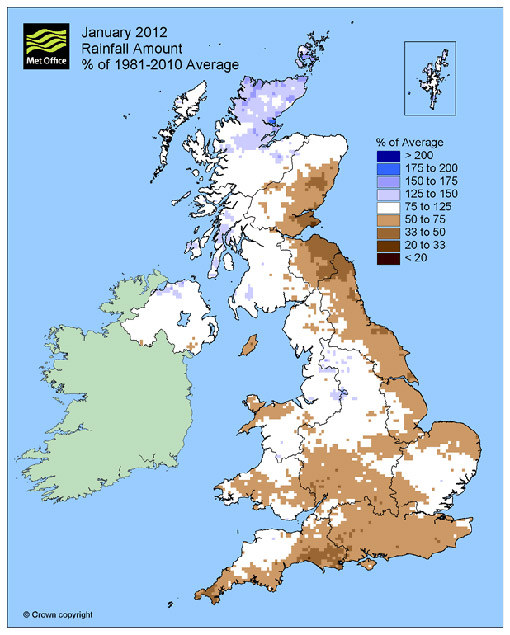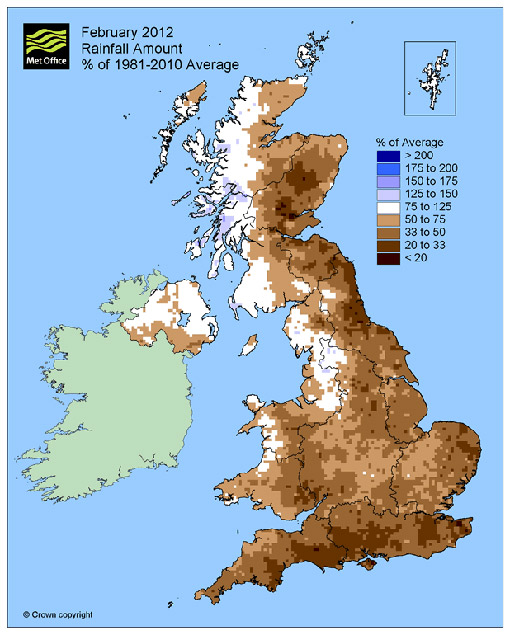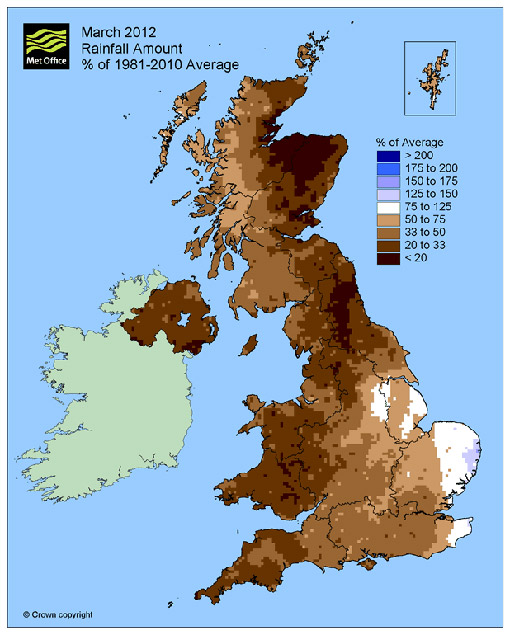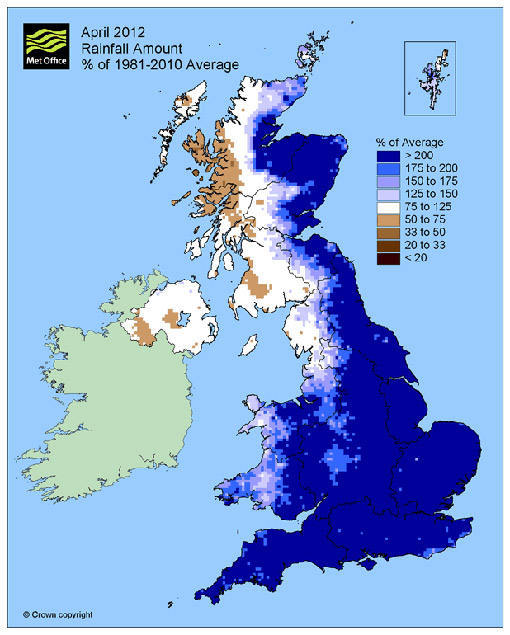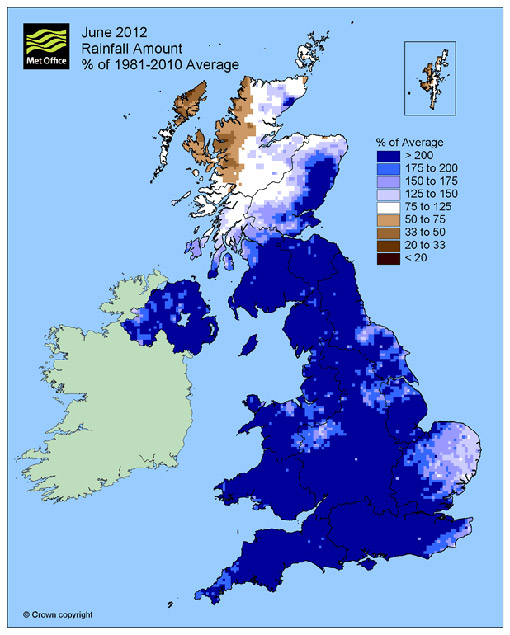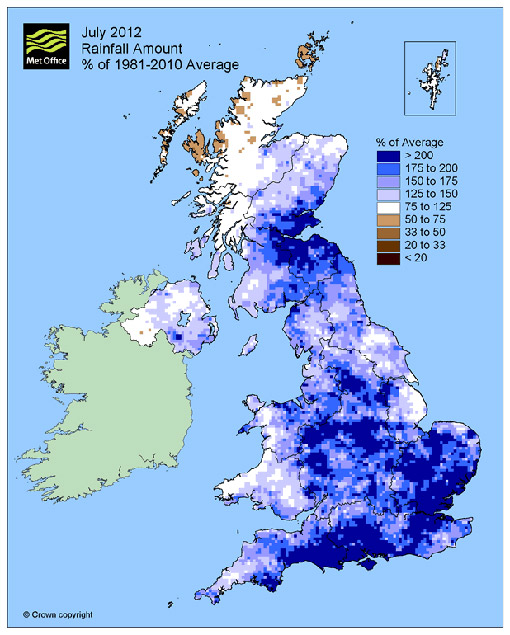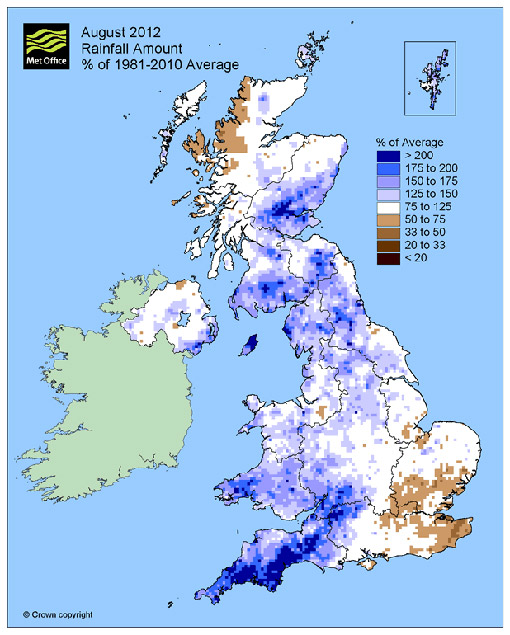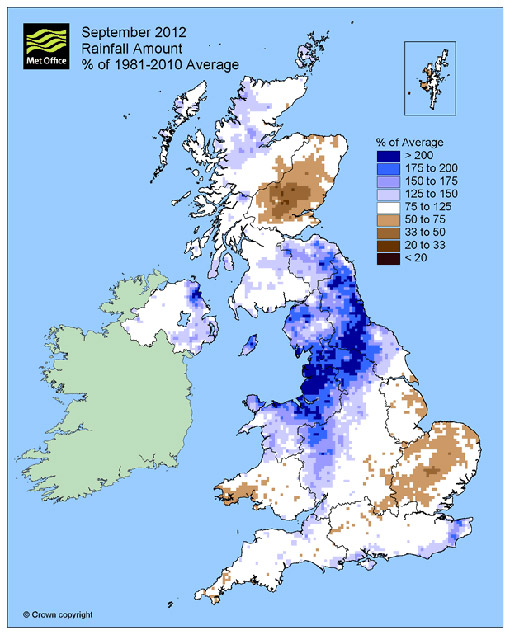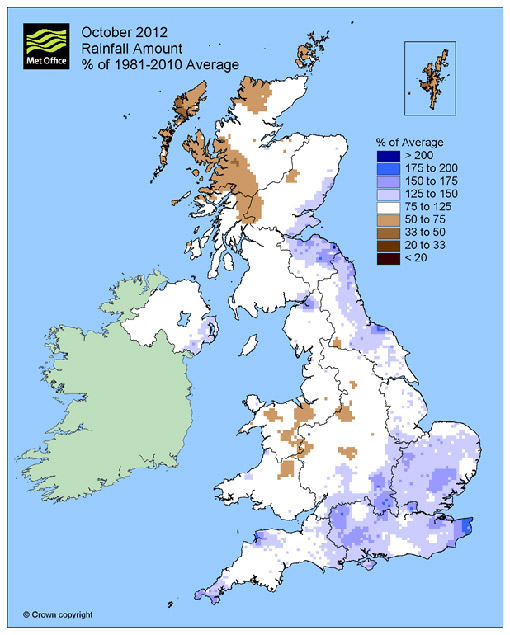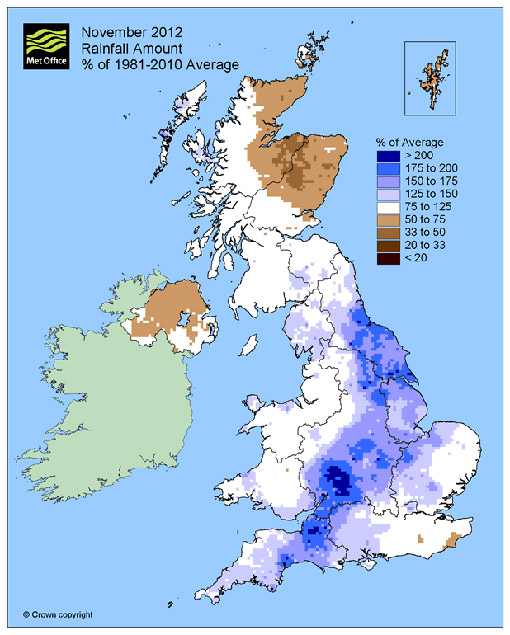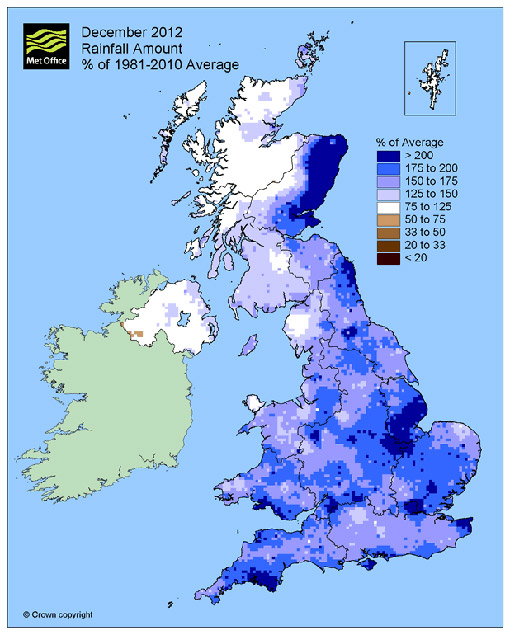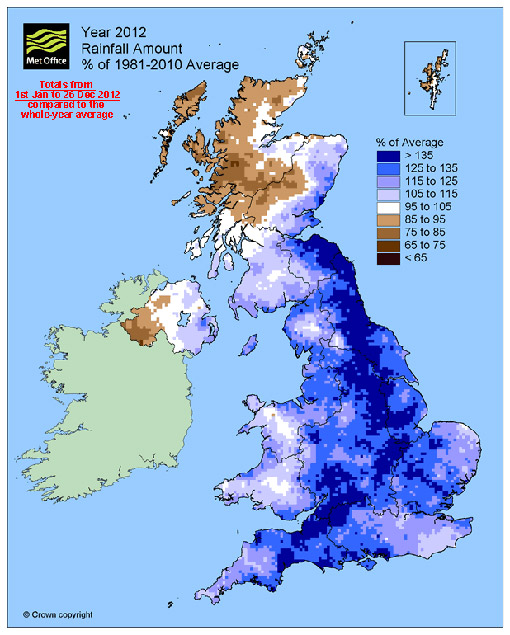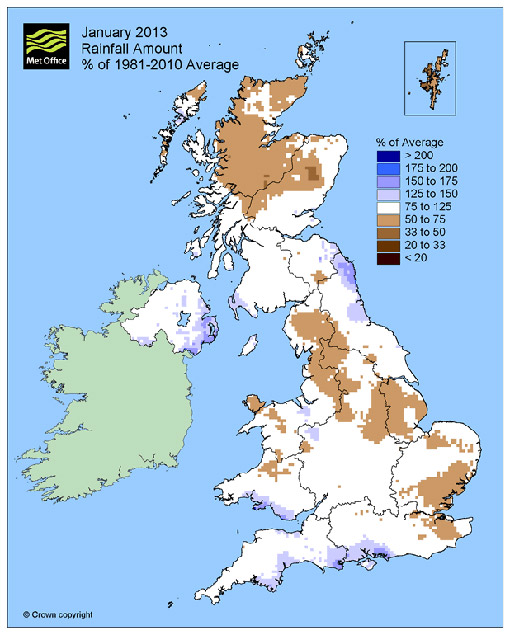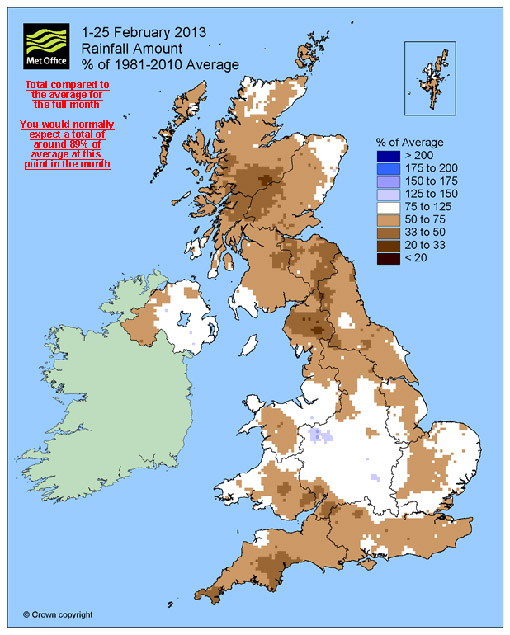NFU Conference 2013: Farmers must adapt to variable weather
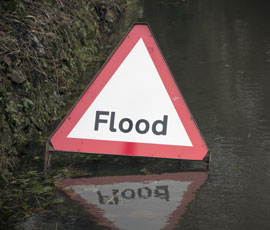
Farmers struggling to grow crops on saturated soils have been told that variable weather in the UK is here to stay.
Sarah Jackson, head of strategic engagement at the Met Office, said for the next 10-20 years, the natural variability in rainfall would continue across the UK.
This is largely driven by the geographical position of the British Isles, on the edge of the Atlantic Ocean with its warm waters, yet close to continental influences of mainland Europe, she added.
However, Dr Jackson told farmers at the NFU conference that the sudden change from drought to wet weather last April was “unusual”.
“The 1976 drought did terminate very rapidly, but that happened in autumn which is when you expect rain to come,” she said, during a breakout session discussing weather and its effect on farm businesses.
“This drought has no modern parallel in terms of the way it broke down. Normally the spring and summer is a time when you expect much less rainfall.
“We are doing an awful lot of research to try to understand exactly what caused this period from dry to wet.”
There is no particular suggestion that climate change was a big factor in the recent drought, she added.
Environment Agency’s tips for increasing farm water security
- Improve crop and quality standards
- Irrigation efficiency
- Harvest rainwater
- More flexible abstraction licences
- Water abstraction groups and sharing resources (trading)
- Build new reservoirs
- Innovation to make more water available (such as high flows in summer, grey water use)
“It looks very much as though it was associated with weather patterns in the tropics. But that’s still very much subject to research.”
The Met Office has released rainfall maps for the UK for the last 14 months.
Dr Jackson said the first three months of 2012 were characterised by warmer, drier and sunnier weather than normally expected. But from April to October, the UK switched to cooler, wetter and duller than normal weather.
“It’s that combination of the wet weather and lack of sunshine that has been key on the impacts farmers have felt in terms of crop production,” said Dr Jackson.
For England and Wales, 2012 was the wettest year on record, including the wettest April to December since 1976.
Dr Jackson said the changing jet stream played a large contribution to the UK’s wet summer.
“Normally, you would expect the bulk of the UK to be to the south of the jet stream, but this summer for a lot of the time we were to the north of the kink,” she explained.
“That’s a time when you normally get low pressure systems moving south west to north east across the country and often they can move very slowly so that when it does rain you get quite a lot of rainfall depositing in any one area.”
Long term the Met Office has warned farmers to expect more rain in winter and less in summer.
The Environment Agency said river flows were continuing to decrease. By 2050, the agency has predicted a 15% decrease in river flows overall, including a 50-80% decrease in some river levels.
The Met Office is in discussions with the NFU over how it can develop its services to help farmers in the future.
PHOTOS: Farmers share wet weather photos

